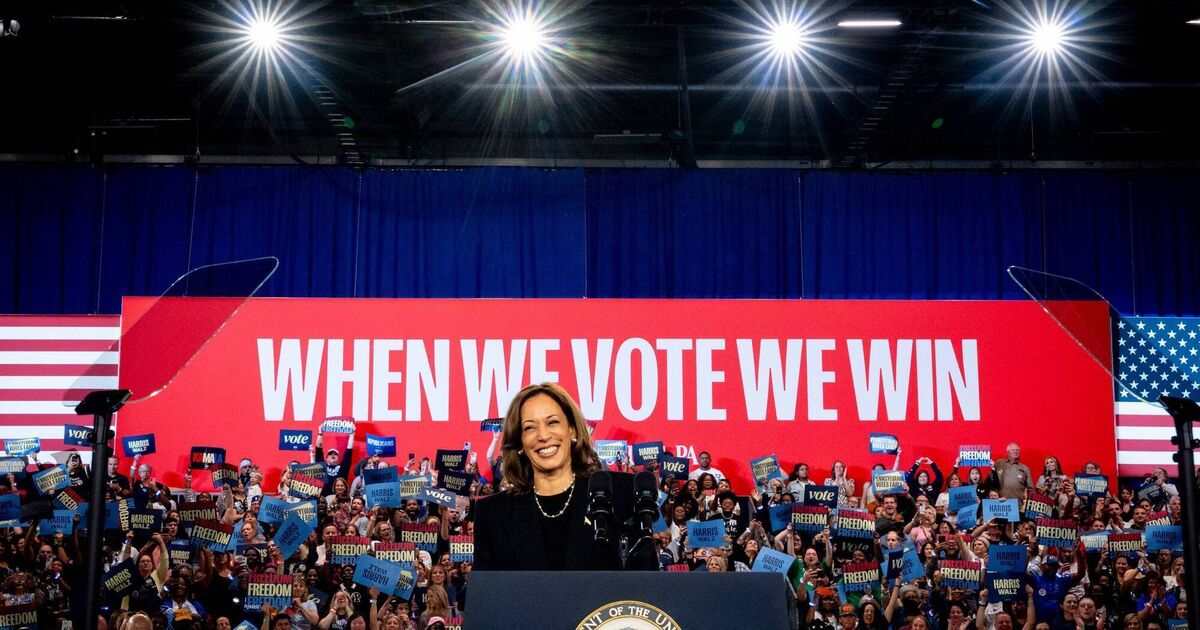Headline: Arab-American Voters Shift Political Allegiance in Michigan
Dearborn‘s disenchanted voters flock to Jill Stein as Biden faces backlash
DEARBORN, United States: As the turmoil in the Middle East looms large in discussions throughout the United States, a growing number of Arab-American voters in Michigan are reconsidering their political allegiances. Among them is Soujoud Hamade, a 32-year-old Lebanese-American real estate lawyer and registered Democrat, who cast her ballot for Green Party candidate Jill Stein in this year’s presidential election. Her decision reflects a deeper disillusionment with the Biden-Harris administration’s steadfast support for Israel amid ongoing violence in the region.
"It’s very emotional," Hamade told AFP after voting at a local school in Dearborn, the nation’s largest Arab-majority city. "Every time I watch the news or get on social media, I see my people being decimated, I see my home country being destroyed." Her voting decision encapsulates a significant shift in sentiment among the community, where many feel abandoned by the Democratic Party.
A Significant Political Landscape in Dearborn
Dearborn has a population of around 110,000 residents, with 55 percent identifying as Middle Eastern or North African. This diverse city, known as the birthplace of Henry Ford and the home of Ford Motor Company’s headquarters, played a pivotal role in President Biden’s 2020 campaign by contributing heavily to his electoral success in Michigan. However, a recent wave of polling indicates that many Muslim and Arab-American voters are distancing themselves from the Democratic Party in the wake of the current administration’s foreign policy.
Hamade’s vote for Stein comes not just as a protest but as an attempt to push the Green Party to capture five percent of the national popular vote. Achieving this threshold would secure federal funding that could enhance the party’s viability and challenge the traditional two-party system in the U.S. "I want to move the needle forward," she stated, articulating her hopes for a more inclusive political environment.
The Green Party’s Growing Influence
Jill Stein, a Jewish physician and a familiar face within the Green Party, stands poised to capture support not only among Arab-Americans but also from progressives and younger voters across the nation. Her stance against violence has resonated deeply with voters like Muhammad Hijazi, a 28-year-old engineer. "She’s the only one who’s anti-genocide," Hijazi remarked, emphasizing his loss of faith in the Democratic establishment after previously supporting their candidates.
Despite the increasing support for Stein, the political landscape remains complex. Many voters, including Hijazi, express skepticism about former President Donald Trump’s intentions regarding Middle Eastern policy, yet he has made inroads in the Dearborn community. Trump’s recent visit to Dearborn and endorsements from local Muslim mayors signal his efforts to connect with voters who feel marginalized.
Shifting Perspectives Among Local Voters
Primary concerns voiced by voters in Dearborn revolve around "peace in the Middle East," with many expressing discontentment with both major candidates. Charles Fawaz, a 29-year-old first-grade teacher, expressed admiration for Trump’s outreach efforts, stating, "When Trump was president, everything was fine with our foreign policy because other leaders respected our country." This perspective is reflective of an underlying frustration with the absence of effective solutions to long-standing geopolitical issues.
For Hamade and her peers, there is an understanding of the potential implications of their voting decisions. "To put the onus on Arab Americans to vote for someone who’s directly contributing to the genocide of other people is outrageous," she asserted, highlighting the moral dilemmas faced by voters in a polarized political atmosphere.
The Implications of Voter Sentiment
As community sentiments evolve, it becomes increasingly apparent that the dynamics of local voting can reshape broader electoral outcomes. The rejection of traditional party lines by Arab-Americans in Dearborn holds potential consequences not only for the Democratic Party’s electoral strategies but also for ongoing discussions surrounding foreign policy and domestic governance.
As Dearborn’s voters come to terms with their political futures, their choices could significantly influence Michigan’s vital role in the national landscape. This shift invites further exploration into the relationship between foreign policy, local governance, and electoral behavior, provoking questions that resonate beyond the poll booths and into the heart of the community.
In light of these changes, readers are encouraged to reflect on the evolving dialogue surrounding political identities and to consider the voices that may have historically been overlooked in the American political landscape. What are your thoughts on the changing dynamics in urban voting patterns? Share your perspectives and experiences in the comments below.
For more insights on political trends and community engagement, explore our articles on civic participation and voter responsibility at [Shorty-News](insert link here). For industry-leading analysis on tech and social impact, check out TechCrunch, The Verge, and Wired.
This article adheres to ethical journalism standards, and all sources are accurately represented to encourage informed dialogue among readers.


